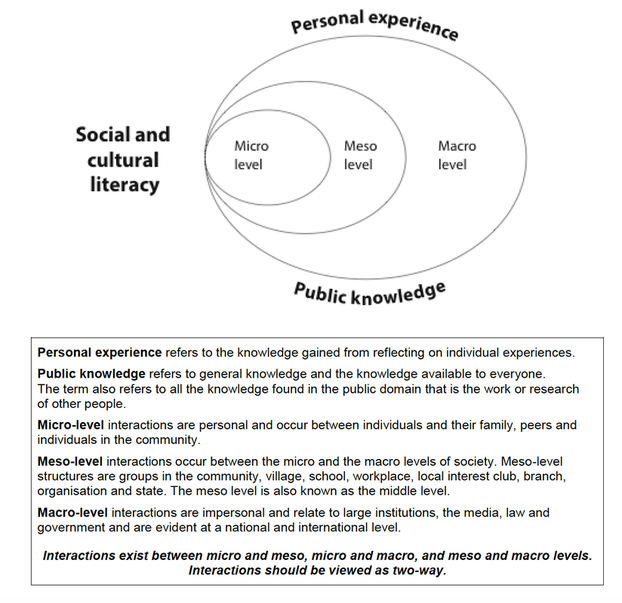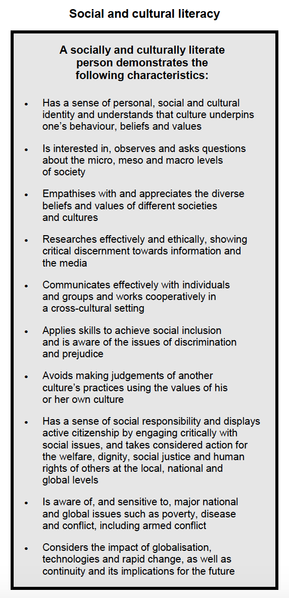The Framework of Society and Culture
Concepts
When studying Society and Culture students need to be familiar with the language of the course. These terms need to quickly become part of students' regular vocabulary so they can speak and write about the topics study with ease. The syllabus breaks the course concepts into three groups:
|
1) Fundamental concepts:
|
2) Additional concepts:
|
3) Related concepts:
These vary according to the topic being studied and will be noted at the top of each topic page. |
Fundamental and additional concepts form the foundation of the entire course. They have been listed here to form the acronym, SPECTIGGAPT. Students should have a list of these terms and their meanings stuck to their bedroom walls throughout their time of studying Society and Culture. Use the definitions provided by the syllabus (pages 15-17) rather than finding random references via Google.
Social and cultural literacy
Society and Culture is designed to facilitate the development of a student’s social and cultural literacy. Achieving social and cultural literacy is a developmental process that requires the student to synthesise personal experience and public knowledge at the micro, meso and macro levels of society.
Social and cultural literacy refers to the idea that people should possess a body of knowledge, understanding and skills that allows them to share, communicate effectively, and respect themselves and others. The process of gaining social and cultural literacy is reflected in the diagram below.
Society and Culture Syllabus (page 24)
The following images have been taken from the Society and Culture Syllabus, pages 24-25.
Like the official concepts, this material about social and cultural literacy needs to be very familiar to students throughout the course. In the HSC exam they are explicitly examined as required knowledge and students' ability to apply this knowledge to topics studied and to scenarios provided in the exam.


